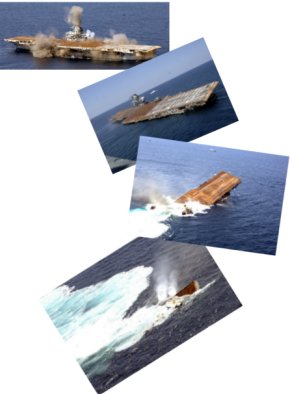 "The Mayor" has died. He was like everyone's favorite uncle.
"The Mayor" has died. He was like everyone's favorite uncle. The News Journal's editorial board has a tribute. News of his death is here. Highlights of his life are here.
A Beach View
"Hotel and restaurant workers often say that tips over Memorial Day Weekend exceed anything they see the rest of the summer. Beach rentals almost always are full. Hotels can be completely booked many months in advance. It's the one time of year when locals actually consider whether they should telephone ahead for a dinner reservation."The article also made extensive mention of Univ. of West Florida Prof. Steven Philipp's 1999 economic study of Pensacola Beach Memorial Day titled, "Gay and Lesbian Tourists at a Southern U.S.A. Beach Event." That lengthy study, originally published by Haworth Press, involved 1,200 interviews with "gay and lesbian" visitors to Pensacola Beach over one Memorial Day weekend, plus a historical analysis going back to the 1920's about the "Gay Memorial Day Weekend" for which Pensacola Beach had become famous.
"The time may be fast disappearing when Pensacola Beach businesses can take the Memorial Day Weekend trade of gays and lesbians for granted. The more welcome we make these visitors feel, the more likely they are to continue coming."The Island Authority and beach chamber of commerce have never really done much to encourage the gay tourist trade. They shouldn't be surprised that it has disappeared in the wake of two devastating hurricanes.
"Tourist destinations which have enjoyed substantial gay patronage in the past, without making much effort on their own to attract or sustain it, increasingly may find themselves faced with aggressive competition from other vacation destinations. Not only do gay visitors expect tolerance from their host communities, as anyone would, but more and more they prefer destinations that are willing to openly and avowedly welcome them.
"Such communities offer what Prof. Philipp describes as "tourism incentives and promotion... special attractions .... welcoming receptions by public figures, [and] positive media coverage... ."
"When 63 percent of young people can't find Iraq on a map after three years of war and coverage, you know that the institutions that claim to be informing us are doing everything but."Danny Schechter of Media Channel.org has published a short and sweet call to exercise your memory on Memorial Day.


"Tourists are very fickle beasts, even the perception that a destination is risky will lead to a marked decrease in tourist traffic."The world isn't flat. It's of varying size, depending on what you're looking for.-- Howard Rosenzweig 2003, quoted in Worldmapper.com
"The maps presented on this website are cartograms, otherwise known as density-equalising maps. The maps of the world you are used to seeing attempt to represent countries according to their land area. A cartogram re-sizes each country (or other geographical unit) according to some other variable - for example population, GDP, number of people with AIDS, etc. In the population example, densely-populated country such as the UK will appear much larger than it does on a standard map, and sparsely populated countries will appear smaller."To date, they've completed a little fewer than a hundred world maps covering such subjects as immigration, petroleum exports, new patent activity, railroad passenger usage, etc. etc.


"An Inconvenient Truth, based on a slide show Gore developed and has given for years, is part documentary, part dark comedy and part horror thriller."-- USA Today
---"The temptation to reject the truth and try to manufacture your own reality is what got us into Iraq—it’s what got us into these deficits. At some point, reality has its day."
It isn't happening here in Pensacola. Not yet, anyway.-- Al Gore, Newsweek, Apr. 28, 2006
"[T]he movie is not about [Al Gore]. He is, rather, the surprisingly engaging vehicle for some very disturbing information. His explanations of complex environmental phenomena — the jet stream has always been a particularly tough one for me to grasp — are clear, and while some of the visual aids are a little corny, most of the images are stark, illuminating and powerful.Margaret Carlson of Bloomberg News Service:"I can't think of another movie in which the display of a graph elicited gasps of horror, but when the red lines showing the increasing rates of carbon-dioxide emissions and the corresponding rise in temperatures come on screen, the effect is jolting and chilling. Photographs of receding ice fields and glaciers — consequences of climate change that have already taken place — are as disturbing as speculative maps of submerged coastlines. The news of increased hurricane activity and warming oceans is all the more alarming for being delivered in Mr. Gore's matter-of-fact, scholarly tone."
"[M]uch of what Gore said in his 1993 book, 'Earth in the Balance,' has proven prophetic. His prescriptions -- increased mileage standards, wind power, appliances rated by the energy efficiency, hybrid cars -- are more practical than anything the government has done lately and are now widely accepted, even by the industries that fought them.
* * *
"Translated to film, 'An Inconvenient Truth'' -- part slide show, part home movie, part freshmen lecture hall -- is never going to be confused with 'The DaVinci Code' with which it shared billing at the 59th Cannes Film Festival this weekend. But it is important, if not always entertaining. It doesn't have the polemics or histrionics of Michael Moore's 'Fahrenheit 911.'' It's NPR, not 'CSI Miami.'
* * *
"It's short and pithy, what Gore's speeches often weren't. The visuals are simple. He drives home the point that there's no factual dispute over global warning. A Science magazine survey of all peer-reviewed studies on climate change showed that of the 928 independent studies done to date, (those not paid for by industry) all concluded that global warming is a real and growing threat.
"There are no independent studies saying otherwise. Yet stories sampled from newspapers, television and magazines, show that 53 percent suggest global warming is unproven.
"In that way, global warming is much like the evidence that tobacco caused lung cancer. For decades it was greeted by the industry, politicians, doctors paid to do ads and the media with unwarranted skepticism -- until everyone accepted that smoking makes you deathly ill.
* * *
"The movie comes at a time when some pundits (including me) might wonder if we should give a rest to that old saw about likeability. Maybe Americans prefer to have a beer and burger with the charming frat boy to the student who always does his homework. But is that a wise basis for choosing a president?
"With all the needless death from a ill-conceived war, the wasteful corruption of sweetheart contracts in Iraq and New Orleans, debt and deficits as far as the eye can see, gas prices through the roof with no energy policy in sight, and with a president who delegates to incompetents and cronies, I'm ready to give the class nerd his due and raise a glass to a serious man. Here's to you, Al and a huge box-office gross."
 "Everybody wants to get inna de act," the old comedian Jimmy Durante used to grumble.
"Everybody wants to get inna de act," the old comedian Jimmy Durante used to grumble."The Northeast is staring down the barrel of a gun," said Joe Bastardi, Chief Forecaster of the AccuWeather.com Hurricane Center. "The Northeast coast is long overdue for a powerful hurricane, and with the weather patterns and hydrology we're seeing in the oceans, the likelihood of a major hurricane making landfall in the Northeast is not a question of if but when."Others disagree. As USA Today observed last week, "Most forecasters put the odds of a major northeastern hurricane somewhat lower than Bastardi, but still well worth considering. There is a 7% chance of a hurricane making landfall somewhere between New York City and the southern suburbs of Boston this year, according to meteorologists at Colorado State University."
"The North Atlantic is in the midst of a 'multi-decadal signal,' a climate pattern favorable to hurricane formation and which is likely to last another 10 or 20 years, said Max Mayfield, hurricane center chief.Water temperatures in the North Atlantic are said to be nearly twice as warm as normal for this time of year. According to the Danbury New Times, "A buoy 200 miles off the New Jersey coast recorded a water temperature of 70 degrees in mid-April. It's typically 42 degrees at that time."
That climate pattern involves a confluence of conditions in the ocean and atmosphere, with warmer sea surface temperatures fueling storms and weaker than usual wind shear allowing them to gather force rather than get broken up as they travel westward, said Gerry Bell, hurricane outlook lead meteorologist."
 The Pensacola News Journal has begun running the predictable daily puff pieces announcing that Pensacola Beach is ready for you this coming Memorial Day weekend. It's always a delicate high-wire act for local tourism promoters to come off sounding wildly optimistic about the coming crowds while reassuring stragglers there still are hotel rooms and restaurant seats to be had.
The Pensacola News Journal has begun running the predictable daily puff pieces announcing that Pensacola Beach is ready for you this coming Memorial Day weekend. It's always a delicate high-wire act for local tourism promoters to come off sounding wildly optimistic about the coming crowds while reassuring stragglers there still are hotel rooms and restaurant seats to be had. Senator Jeff Sessions of next-door Alabama, a state that ranks among 43rd out of 50 on the 'smartness scale,'' last week co-sponsored an amendment to the "Comprehensive Immigration Reform Bill" that would require anyone seeking U.S. citizenship status to pass a Homeland Security test about "key documents" in U.S. history, including the Federalist Papers, the Constitution, and the Emancipation Proclamation.
Senator Jeff Sessions of next-door Alabama, a state that ranks among 43rd out of 50 on the 'smartness scale,'' last week co-sponsored an amendment to the "Comprehensive Immigration Reform Bill" that would require anyone seeking U.S. citizenship status to pass a Homeland Security test about "key documents" in U.S. history, including the Federalist Papers, the Constitution, and the Emancipation Proclamation.
"How many fish will become contaminated, and how high become the chances of getting cancer if you eat them, essentially remain unanswered questions."Back when there was an official Pensacola Beach Residents web site and Linda Leithner was writing a column called Island Insights, she had occasion to observe:
"Most economic impact studies are like the annual Oscar Awards ceremony, only with leather patches on the elbows to resemble serious research. They tend to be fatuous exercises in self-congratulation based on questionable assumptions that reaffirm a pre-existing bias. Nevermore so, it seems, than when the study is funded by the very entity in question."We were reminded of this over the past week as we encountered time and again in the pages of the Pensacola News Journal references to an "economic impact study" that proved sinking the U.S.S. Oriskany would mean a boost of "millions of dollars a year" for the Pensacola area economy.
"The major sources of uncertainty were the assumptions and parameters used in the models, the applicability and sensitivity of the benchmarks used in the assessment, and uncertainty about the sources of PCBs on the vessel."That pretty well covers the waterfront, you might say. It all boils down to one big shrug and a "Who knows?"
 The job carnage at the Pensacola News Journal continues. After seven years as a superb and at times even courageous Executive Editor, Randy Hammer is transferring to the Louisville Courier-Journal where, it is said, he'll "be in charge of the newspaper's non-daily publications."
The job carnage at the Pensacola News Journal continues. After seven years as a superb and at times even courageous Executive Editor, Randy Hammer is transferring to the Louisville Courier-Journal where, it is said, he'll "be in charge of the newspaper's non-daily publications." Florida's annual 12-day Hurricane Preparedness Tax Holiday starts Sunday. Batteries, weather radios, and all other manner of storm preparedness items can be purhased tax-free. Details are here.
Florida's annual 12-day Hurricane Preparedness Tax Holiday starts Sunday. Batteries, weather radios, and all other manner of storm preparedness items can be purhased tax-free. Details are here."Tiki torches are decorative poles about 5 feet ... in height with a top fuel reservoir and wick. They can be placed along walkways, patios, pools or gardens to provide a wonderful tropical ambiance."How helpful will a flickering flame be in the middle of a "wonderful tropical ambiance" like a hurricane-force wind? Can anyone...um... er... shed any light on this subject?
 Who's your Daddy?
Who's your Daddy?The evolutionary split between humans and our nearest evolutionary cousins, chimpanzees, may have occurred more recently than we thought, according to a new comparison of the respective genetic sequences. What's more, it might have been a messy divorce rather than a clean break — leading to the controversial theory that our two sets of ancestors may have interbred many thousands of years after first parting company.One consequence of the findings is that new doubt has been cast on the exact nature of the Toumai skull, found five years ago. It's been asserted by some that Toumai was the earliest hominid remains yet found, while others claimed it looked more like a chimpanzee. Without more bones, no one could be sure.
* * *
[R]esearchers led by David Reich of Harvard Medical School in Boston, Massachusetts, now calculate that the split [between Humans and Chimpanzees] may have occurred no more than 6.3 million years ago, and possibly as recently as 5.4 million.

 Today, the world waves goodbye to the U.S.S. Oriskany (Sept. 25, 1950-May 17, 2006). The decommissioned Navy aircraft carrier is scheduled to be buried at sea 23 miles off the coast of Pensacola Beach at about 8:30 a.m. CDT. At a depth of over 200 feet, it is hoped the Oriskany will become an attractive nuisance, luring unsuspecting fishes to their demise, providing a new wreck for scuba divers to explore, and giving the Pensacola Chamber of Commerce another tourist magnet.
Today, the world waves goodbye to the U.S.S. Oriskany (Sept. 25, 1950-May 17, 2006). The decommissioned Navy aircraft carrier is scheduled to be buried at sea 23 miles off the coast of Pensacola Beach at about 8:30 a.m. CDT. At a depth of over 200 feet, it is hoped the Oriskany will become an attractive nuisance, luring unsuspecting fishes to their demise, providing a new wreck for scuba divers to explore, and giving the Pensacola Chamber of Commerce another tourist magnet.To minimize the risk of storms or tidal action affecting its position, it will be aligned north to south, bow out and stern to the distant shoreline.It's been a long, strange trip for the distinguished Essex Class aircraft carrier. None was stranger than the on-again, off-again scuttling, interrupted several times by bankruptcies, unexpected environmental remediation delays, and the heightened storm years of 2004-2005. Altogether, as the PNJ's Larry Wheeler reported earlier this week, the total cost of sinking the ship has doubled from initial estimates, and now is expected to top $21 million.
Early on sinking day, the Navy and its civilian scrappers, Resolve Marine Group of Port Everglades, Fla., will detonate preset charges to punch the last crucial holes in the hull to allow the carrier to take on seawater at a strategic pace and pattern so that it sinks "even keel, even trim." The slow-motion belly flop is expected to last at least five hours.
In September 1976, Oriskany headed to Bremerton, Washington, to be decommissioned. She was stricken from the Naval Vessel Registrar in 1989. In 1994 she was sold for scrapping, and in May 1996 was towed to Mare Island Navy Yard, Vallejo, California. After a prolonged effort, the contractor defaulted and Oriskany was repossessed by the Navy in 1997.Destin's Emerald Coast.com also has a concise summary, with links to more:
Oriskany was later transferred to the Beaumont Reserve Fleet, Beaumont Texas from Mare Island. It was determined that the journey would take the ship around Cape Horn, being towed by Crowley Marine Service. In August 1999, the Oriskany arrived in Beaumont, Texas where it was harbored in Port Neches River.
The 888-foot carrier has a rich 62-year history that began in the last years of World War II.Photographs of the carrier in her prime, as well as in her rusted dotage, can be viewed here courtesy of the U.S. Navy. The Navy's environmental assessment and remediation plans are here, in pdf format.
In 1943, Congress authorized the construction of the ship, named after the tide-turning Battle of Oriskany in the Revolutionary War. The ship was launched on Oct. 13, 1945.
On Sept. 25, 1950, the Oriskany was officially commissioned and sent to take part in the Korean Conflict. From 1952 to 1953, the Oriskany served with the U.S. Seventh Fleet as part of the United Nations Task Force. During this time, fighters took off from the Oriskany and took part in what is believed to be the first multi-jet aerial dog fight in history.
Movies such as, “The Bridges of Toko Ri,” were filmed upon the ‘Mighty O’ and President John F. Kennedy was a guest aboard her to watch an operation readineness demonstration.
 The sinking of the Oriskany will be filmed by Prallax Films, Inc. of British Columbia, Canada. When the whole thing is over, the Navy claims the Oriskany will be the largest "intentionally sunken" artificial fishing reef in the world.
The sinking of the Oriskany will be filmed by Prallax Films, Inc. of British Columbia, Canada. When the whole thing is over, the Navy claims the Oriskany will be the largest "intentionally sunken" artificial fishing reef in the world."As the carrier went down, its bow stuck up, straining the heavy metal anchor lines. The port side bow line appeared broken early in the process. Clouds of debris could be seen billowing from the hangar deck, and water churned and bubbled heavily at the submersion point. Towlines strained at the bow. "
"The mind-set was best explained by the linguist David W. Maurer in his classic 1940 book, 'The Big Con':
The amazing thing is how utterly stupid the "Christian psychotherapist" was -- and how astonishingly persistent the Nigerians were. If the ending of the article is any indication, by now they've found a way to contact the devout shrink in prison and he's busy raising more money to hand over to them."As the lust for large and easy profits is fanned into a hot flame, the mark puts all his scruples behind him. He closes out his bank account, liquidates his property, borrows from his friends, embezzles from his employer or his clients. In the mad frenzy of cheating someone else, he is unaware of the fact that he is the real victim, carefully selected and fatted for the kill. Thus arises the trite but none the less sage maxim: 'You can’t cheat an honest man.' ”

The problem with those who oppose flood insurance reform -- and for that matter, many of those who argue for it, as well -- is that everyone seems to be driven by a "me-first" mentality.If any good should come out of the unusually severe flooding in New England it's a broader public understanding of the importance of the National Flood Insurance Program and a stronger coalition favoring rational reform and improvement of FEMA.
"The drive to restructure the perennially underfinanced program has been blocked by real estate interests [and] lawmakers from areas that rarely flood who see their constituents as supporting those who are frequently flooded, particularly in the South."The real estate people, we're told, fear that updated, realistic flood zone maps will reduce the market and increase the expense of home ownership. The "regional rivalries" arise between politicians in the drier states and those in wetter ones. This is illustrated by a particularly egregious remark uttered by one Michigan congresswoman:
"You've got people living in dry areas paying for people who want to keep living in wet ones," said Representative Candice S. Miller, Republican of Michigan. "They're sticking it to us, and I don't like to be stuck."Oddly enough, congressman Miller is from a moderately populous district on the eastern shore of Saginaw Bay. According to the U.S. Geological Survey, substantial parts of what is now her district experienced devastating floods in 1904, 1947, 1975, and 1986.
"Those same lobbying pressures and regional rivalries have helped create an insurance plan that has consistently defied the central rule of how to succeed in the insurance trade: have enough policyholders paying enough in premiums to spread out the risk and build a financial cushion against disaster."As former NFIP director J. Robert Hunter told the Times, shackles placed by Congress decades ago on the program made sure the NFIP --
"... hasn't come close to its promise of insuring everyone who's in danger of being flooded, reducing the cost of disasters for the federal government or making sure the program ultimately pays its own way.What? Congress is gazes through a distorted looking glass? Well, whoever do you suppose it is who keeps electing those idiots and sending them to Washington to do more damage?
"It's like a trip through the looking glass. Everything is backwards."
 Fred E. Bernstein of the New York Times writes that in Florida these days, "higher ground can be a selling point." On the other hand, "higher ground" is a relative term. Says Bernstein, "The highest point in Florida — Britton Hill in Lakewood (also in Walton County) — is a mere 345 feet."
Fred E. Bernstein of the New York Times writes that in Florida these days, "higher ground can be a selling point." On the other hand, "higher ground" is a relative term. Says Bernstein, "The highest point in Florida — Britton Hill in Lakewood (also in Walton County) — is a mere 345 feet."
 Pensacola's own conservative commentator and former congressman Joe Scarborough has weighed in on the latest NSA phone/internet dragnet tapping of tens of millions of American phone lines:
Pensacola's own conservative commentator and former congressman Joe Scarborough has weighed in on the latest NSA phone/internet dragnet tapping of tens of millions of American phone lines: "Now, for liberals who‘ve long been going against almost all of these issues to defend privacy, the news has to be disturbing. But no less so the conservatives who have fought national ID cards and gun registration for years out of fear of big government.On this subject, Scarborough knows what he's talking about, as the full MSNBC transcript reveals:
"Now, whatever you consider yourself, friends, you should be afraid. You should be very afraid. With over 200 million Americans targeted, this domestic spying program is so widespread, it is so random, it is so far removed from focusing on al Qaeda suspects that the president was talking about today, that it‘s hard to imagine any intelligence program in U.S. history being so susceptible to abuse."
"I served on the Judiciary Committee and the Armed Service Committee in Congress for four years, and no program I studied while using security clearances ever came close to the scope of this massive spy program. It is dangerous, it breaks FCC laws, and it endangers all Americans‘ right to privacy.Somehow, Joe seems to have overlooked the Republican congressional majority. No matter. There's plenty of blame to go around.
"But you know what? The villains in this spy program are pretty easy to target, almost as easy as your phone records. First you have the president, who‘s shown that he will break laws if they get in his way of spying. Second, Democratic leaders—they complain now, but where were they? They reviewed the program. Why no protest? Don‘t hold your press conferences now, Nancy Pelosi. Tell us about it when you learn about it!
"And finally, the phone companies, who actually profited from the government reading all of your phone bills. They should be sued and their CEOs fired.
"Hey, memo to the president and congressional leaders who signed up on this lousy program: We don‘t trust you anymore. We don‘t trust you with our phone bills. We don‘t trust you with our bank records. We don‘t trust you with our medical histories. From now on, if you want to look at Americans‘ private records, get a damn search warrant!"

"It's been said that negligent local government is Northwest Florida's most lucrative source of revenue."Navarre Beach residents just can't catch a break. First, they lose their leaseholder tax appeal. Now, they're up in arms over escalating Santa Rosa County MSBU assessments for public beach renourishment, according to William Rabb's report in today's PNJ:
"The county set up a taxing district for the beach renourishment work in 2003 and sent bills to beach residents last month. The renourishment fees were based largely on the 2005 appraised value of the property. But because of rising housing prices after recent hurricanes, those values have little basis in reality, property owners said."Rabb's article includes the obligatory individual tale of horror. It's compelling -- and probably representative of a good many other Navarre Beach residents and businesses:
"Adrienne Wilson and her husband purchased a condominium unit on Navarre Beach a decade ago so they could rent it out and build their retirement nest egg.What Rabb has missed is that Navarre Beach residents actually asked for the MSBU tax to be imposed on themselves. Worried some years ago that Santa Rosa County was dragging its feet addressing the issue of post-Hurricane Georges sand replacement, Navarre Beach residents went so far as to propose taxing themselves as a way of persuading the county to undertake the project.
"'Now, we're going to have to sell it because we can't pay the assessment fees,' said Wilson, a dental hygienist from Atlanta.
* * *
"Wilson, for example, must pay $13,000 over six years for her 14th-story unit at The Pearl condominium, while a similar unit on the second floor pays much less, she said. She can't rent her condo for much because the development's swimming pool is still out of service, but she still must pay more than owners in other high-rise developments on the beach, she said."
"'It's just not fair,'" Wilson said.
 The Pensacola News Journal editorial staff pens a succinct, skeptical editorial today about George W. Bush's deja vu moment appointing Gen. Michael Hayden as the replacement for CIA director Porter Goss:
The Pensacola News Journal editorial staff pens a succinct, skeptical editorial today about George W. Bush's deja vu moment appointing Gen. Michael Hayden as the replacement for CIA director Porter Goss:In August 2004, Bush nominated Goss by saying, "He is the right man to lead this important agency at this critical moment in our nation's history."The credit for spotting this telling repetition, as many now know, actually belongs not to some courageous White House reporter who suddenly woke up, but to comedian Jon Stewart. Stewart's "Daily Show" news spoof on the Comedy Channel spotted Bush's deja vu moment three days ago, as Crooks and Liars documented.
Last week, he nominated Gen. Michael Hayden with these words: "He's the right man to lead the CIA at this critical moment in our history."
"Vice President Dick Cheney and his chief of staff, I. Lewis 'Scooter' Libby, personally came to Langley to intimidate analysts on several occasions. Secretary of Defense Donald Rumsfeld and his then deputy secretary, Paul Wolfowitz, constructed their own intelligence bureau, called the Office of Special Plans, to sidestep the CIA and shunt disinformation corroborating the administration's arguments directly to the White House.In other words, Mr. Bush appointed Porter Goss for political reasons, to purge the agency of analysts who would not gin up phony reasons justifying the administration's argument "that Saddam was cooperating with al Qaeda." In Goss and the retinue of Republican congressional aides he brought with him to the CIA, Bush thought "he had discovered the perfect man for the bloody job." He embedded a politician in the agency whose top priority was loyalty to George W. Bush, not the facts as revealed by professional intelligence workers.
"'The administration used intelligence not to inform decision-making, but to justify a decision already made,' Paul Pillar, then the chief Middle East analyst for the CIA, writes in the March-April issue of Foreign Affairs. 'The process did not involve intelligence work designed to find dangers not yet discovered or to inform decisions not yet made. Instead, it involved research to find evidence in support of a specific line of argument -- that Saddam was cooperating with al Qaeda -- which in turn was being used to justify a specific policy decision.'
"attempt to run the CIA through his own band of loyalists proved his ultimate undoing. It turned out that the 'gosslings,' as they were known at Langley (after 'quislings'), had unsavory connections that trailed them into the agency. An unintended consequence of Goss' dependence on his team of political hatchet men was that his future was dependent on their past."And that is the really worrisome aspect to Bush's deja vu moment. It's not a question of "confusion" or "inertia." Bush is changing CIA directors, not his long-standing goal of politicizing the agency. Why shouldn't he recycle the same CIA director announcement? Nothing has changed but the name of the nominee.
"Regardless of anodyne assurances offered in his forthcoming congressional testimony, Hayden will preside over the liquidation of the CIA as it has been known. The George H.W. Bush CIA headquarters building in Langley will of course remain standing. But the agency will be chipped apart, some of its key parts absorbed by other agencies, with the Pentagon emerging as the ultimate winner.Concludes Blumenthal, "No president has ever before ruined an agency at the heart of national security out of pique and vengeance. The manipulation of intelligence by political leadership demands ever tightened control. But political purges provide only temporary relief from the widening crisis of policy failure."
"The militarization of intelligence under Bush is likely to guarantee military solutions above other options. Uniformed officers trained to identity military threats and trends will take over economic and political intelligence for which they are untrained and often incapable, and their priorities will skew analysis. But the bias toward the military option will be one that the military in the end will dislike. It will find itself increasingly bearing the brunt of foreign policy and stretched beyond endurance. The vicious cycle leads to a downward spiral. And Hayden's story will be like a dull shadow of Powell's -- a tale of a 'good soldier' who salutes, gets promoted, is used and abused, and is finally discarded."
 "It's essentially a gated community for one."
"It's essentially a gated community for one.""The SurvivaBall is designed to protect the corporate manager no matter what Mother Nature throws his or her way. This technology is the only rational response to abrupt climate change."In an accompanying media release, Halliburton explains:
"The devices -- looking like huge inflatable orbs -- will include sophisticated communications systems, nutrient gathering capacities, onboard medical facilities, and a daunting defense infrastructure to ensure that the corporate mission will not go unfulfilled even when most human life is rendered impossible by catastrophes or the consequent epidemics and armed conflicts.The full text of Brown's remarks is available here.
"'It's essentially a gated community for one,'" said Wolf.
The legal fight about whether millions of dollars in property taxes should be paid on Pensacola Beach homes, condominiums and businesses continues unabated by the Navarre Beach leaseholders' recent court loss.In over 450 words, Pivnick manages to avoid reporting one new fact about the lawsuits. But he does grab a telling quote from the attorney representing some of the litigating leaseholders:
Six lawsuits are pending in Escambia County, and it could be only a matter of weeks before the first one gets a trial date... .
"The leases at Portofino do not have that 99-year perpetual renewal language," said Ed Fleming, a lawyer for Portofino's homeowners associations.That's not exactly a Robert Luskin press leak. What Fleming is saying is well known, too. As we've said before, not all leases Pensacola Beach leases are the same. It stands to reason not all leaseholder tax suit arguments will be the same, either.

"They're working on the levees but the city is flat broke and may declare bankruptcy. Pot holes don't get fixed, stop lights still don't work in areas, the streets are still full of debris in many areas."Tom Morgan, a French Quarter resident and local jazz radio personality took refuge in the Pensacola area after Hurricane Katrina. We published his earlier letter back in March. Here is the latest:-- Tom Morgan
A few people have emailed me and asked how things are going and whether I will send out another update of my log. I finally have time after three weeks of festivals here in New Orleans.
Every day during the last two weeks when I went to the Jazz & Heritage Festival, I drove through areas that had four to five feet of water. All I see in those areas now are semi-gutted houses and a trailer or two. To say that this area in the middle of the city is coming back would be a whopper of a lie, at the least. Everywhere I look it is the same. There's still massive destruction and very little recovery.
Sure we can hold festivals. The electricity is there and the water is good, but are people really coming back? Not yet.
How has life changed in the last few months? We've had more visitors but not enough. I expect that many businesses in the French Quarter will close by the end of the summer. Business is that bad. Even last week when normally people stay over between the first and second weekends of JazzFest, the Quarter still was not even half as busy as it would normally have been Pre-K. The restaurants will make it but the small shops and the ones with the highest rents are hurting badly.
Our electricity in the Marigny is still wonky. We have been able to get through a rain storm or two without an outage but then it went out for an hour last Saturday for no apparent reason.
Some of the street lights have been replaced but we still have some very funky stop lights and none of the blown-down signs have been reinstalled. Relatively few businesses in the 'hood have reopened. My mechanic still hasn't shown up nor have they done any work on the local supermarket.
We've had two neighbors move out. One young couple was never really ready for life in the Big Easy. They moved back to Seattle. Other neighbors have moved due to job changes that Katrina forced on them. This is not a isolated incident, more friends will be moving away due to what has happened.
It has gotten more expensive to live in New Orleans as everything including the taxes on our house have gone up. The music is as sweet as ever which definitely keeps us all sane. Personally, other than the highs of the festivals -- where I hosted many broadcasts, MC'd "Piano Night" at the House of Blues, and did an interview with singer John Boutte on the Allison Miner stage at the 'fest -- stuff is still not going right. I have not received an electric and gas bill for 7 months. I have emailed and called numerous times and still no bill. I totally expect them to turn off my power when I am away for not paying a bill they won't send me.
My insurance company has still not sent me our settlement despite it being settled 6 months ago. My private adjuster can't even get anyone on the phone.
Am I frustrated? Wouldn't you be?
[My wife] Hild's job is seemingly coming back this summer as the Tulane medical school reestablishes itself in the city. Dottie the cat loves the warm weather and would like to be outside all of the time except when it rains. We had a wonderful party last Wednesday with a 100 lbs of crawfish boiled on premises and a wonderful band. A good time was had by all, although the party cost 50% more than last year's of similar size.
I still have not received any magazines since the storm and just Saturday got a letter with a Jan 3 post date. Talk about late delivery! I have no trust in any government entity anymore.
Oh, yes. And where have all those billions of dollars earmarked for us gone? Hell if I know. They're working on the levees but the city is flat broke and may declare bankruptcy. Pot holes don't get fixed, stop lights still don't work in areas, the streets are still full of debris in many areas. Yep, and hurricane season starts in less than three weeks. They tell us they are going to evacuate if a Cat 3 even shows up in Gulf. How will anything get better if half the city leaves three times a month for the next four months?
Still no doctor and no dentist, so much so that we are thinking about flying to Virgina just to have our teeth checked by our old dentist and getting Hild a mammogram. Are we frustrated and tired of the way our city is going? Wouldn't you be?
Hild and I don't want to move away. We both have no desire to be anywhere else in the US. This is good and bad as we are trapped in a situation that is not going to get better for years, so we must be happy with what we have -- good friends, a wonderful house and amazing music. Next time I write, let's hope I will be less frustrated and more optimistic.-- Tom Morgan
"This has a lot of good stuff, a lot of bad stuff and a lot of 'I don't know stuff," one ... lobbyist says of the package."
The Florida legislative session ended late last week with passage of a 141-page insurance bill that slaps a few band-aids on what at least one legislator calls a cancerous tumor. Paige St. John, writing for the Florida flagship of Gannett Corp., offers an overview:
"The Legislature ended 60 days of session near midnight Friday agreeing to pick up $715 million of a $1.7 billion deficit brewing at Citizens Property Insurance, while requiring steep rate hikes from the state-run pool and partly lifting rate controls on other insurers.For a more detailed -- although admittedly preliminary -- analysis, you should wade through the Insurance Journal article. In a second editorial posted mid-day Monday, IJ also summarizes what it sees as the bill's highlights:
* * *
"What we're doing here is just damage control right now," said Rep. Stan Mayfield, voicing a common sentiment among frustrated legislators. "We're just stopping the bleeding," the Vero Beach Republican said. "Then we have to cure the cancer."
* * *
The bill contains $250 million in loans to private insurance companies willing to expand in Florida and consumer-backed catastrophe coverage for the small companies that make up a third of the market.
Both are considered emergency measures.
* * *
Citizens Property Insurance estimates it would take a 60 percent increase, on top of the 45 percent rate hike it already seeks on those homes, to meet a proposed mandate to set its coastal rates high enough to cover the cost of a 100-year storm.
"It is tough," said Sen. J.D. Alexander, a lead insurance negotiator, but "it essentially represents the subsidies that have been in place for these coastal homes, for years and year and years. * * *
Repeatedly, lawmakers were told they have no choice but to open the door to dramatic rate increases."We're in a hurricane cycle for the next 10 to 20 years. It's not going to get any better," said Senate Banking and Insurance Chairman Rudy Garcia, R-Hialeah.
"The bill provides $715 million in tax dollars to help cover part of Citizens' deficit of $1.7 billion, increased rates for Citizen's policyholders, lower emergency assessments by spreading them out over 10 years, and the elimination of homes valued at over $1 million from Citizens after 2008.If there are any winners, they would be insurance customers with a primary residence in Florida, "not vacation and seasonal homes."Other provisions in the bill will include grants for homeowner disaster mitigation, the implementation of a flex-rating system that will allow insurers to adjust rates 5 percent statewide and 10 percent within specific region, and a provision that allows limited apportionment companies to purchase reinsurance from the Florida Hurricane Catastrophe Fund. There is also a rapid cash buildup of 25 percent for the Florida Hurricane Catastrophe Fund. Along with the positive developments some adverse provisions passed including one that will require insurers to adjust Citizens' hurricane claims beginning July 1, 2007."

"The oldest victim to date? Ninety-five. The youngest? A 6-year old boy. The most recent? Fifty-six year old [wheel-chair bound] Emily Marie Delafield of Green Cove Springs, Florida died on April 24 when police, who were called to settle a family spat, used a stun gun to subdue her."
"100 percent of the third-graders [at PBES] tested in math and reading met proficiency levels for the second year in a row.
* * *
'I am pleased,' Principal Jeff Castleberry said. 'I don't want the public to not feel like that's good, but we personally know we can get better and we will get better.' "
The overarching thrust of "Stuff Happens" is a portrait of an administration -- led by a Bush wilier than most of his critics give him credit for -- that swaggers into a war while seemingly incapable of contemplating the consequences. Although that thesis will not strike every theatergoer as revolutionary, it's the mixing of personalities -- and the ways in which the work portrays the high-stakes psychological gamesmanship among the politicians, statesmen and strategists -- that gives it its most surprising moments.
Principle I. Any person who commits an act which constitutes a crime under international law is responsible therefore and liable to punishment.
Principle II. The fact that internal law does not impose a penalty for an act which constitutes a crime under international law does not relieve the person who committed the act from responsibility under international law.
Principle III. The fact that a person who committed an act which constitutes a crime under international law acted as Head of State or responsible government official does not relieve him from responsibility under international law.
Principle IV. The fact that a person acted pursuant to order of his Government or of a superior does not relieve him from responsibility under international law, provided a moral choice was in fact possible to him.
Principle V. Any person charged with a crime under international law has the right to a fair trial on the facts and law.
Principle VI. The crimes hereinafter set out are punishable as crimes under international law:
(a) Crimes Against Peace:
(i) Planning, preparation, initiation or waging of a war of aggression or a war in violation of international treaties, agreements or assurances;
(ii) Participation in a common plan or conspiracy for the accomplishment of any of the acts mentioned under (i).
(b) War Crimes:
Violations of the laws or customs of war which include, but are not limited to, murder, ill-treatment or deportation of slave-labour or for any other purpose of the civilian population of or in occupied territory, murder or ill-treatment of prisoners of war or persons on the seas, killing of hostages, plunder of public or private property, wanton destruction of cities, towns, or villages, or devastation not justified by military necessity.
(c) Crimes Against Humanity:
Murder, extermination, enslavement, deportation and other inhumane acts done against any civilian population, or persecutions on political, racial, or religious grounds, when such acts are done or such persecutions are carried on in execution of or in connection with any crime against peace or any war crime.
Principle VII . Complicity in the commission of a crime against peace, a war crime, or a crime against humanity as set forth in Principle VI is a crime under international law.
"The oldest victim to date? Ninety-five. The youngest? A 6-year old boy. The most recent? Fifty-six year old [wheel-chair bound] Emily Marie Delafield of Green Cove Springs, Florida died on April 24 when police, who were called to settle a family spat, used a stun gun to subdue her."
"The issue of preventive war as a presidential prerogative is hardly new. In February 1848 Rep. Abraham Lincoln explained his opposition to the Mexican War:'Allow the President to invade a neighboring nation, whenever he shall deem it necessary to repel an invasion and you allow him to do so whenever he may choose to say he deems it necessary for such purpose -- and you allow him to make war at pleasure [emphasis added]. . . . If, today, he should choose to say he thinks it necessary to invade Canada to prevent the British from invading us, how could you stop him? You may say to him, 'I see no probability of the British invading us'; but he will say to you, 'Be silent; I see it, if you don't.'This is precisely how George W. Bush sees his presidential prerogative: Be silent; I see it, if you don't.
* * *
There stretch ahead for Bush a thousand days of his own. He might use them to start the third Bush war: the Afghan war (justified), the Iraq war (based on fantasy, deception and self-deception), the Iran war (also fantasy, deception and self-deception). There is no more dangerous thing for a democracy than a foreign policy based on presidential preventive war."